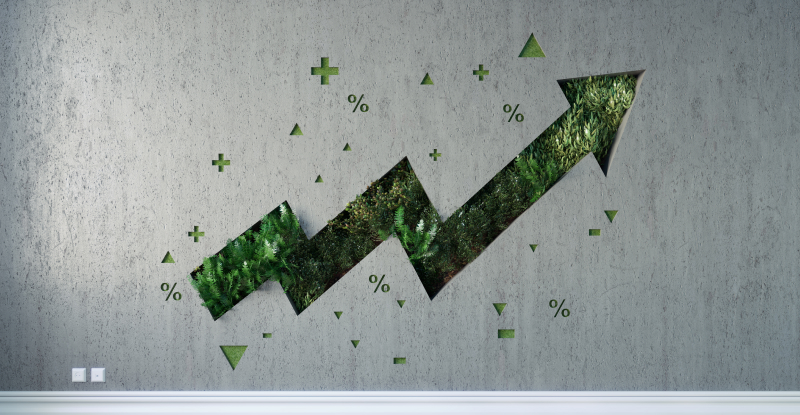
A recurring CPABC PD instructor, Morgan presented the session “ESG and Stakeholder Activism” (PD Nexus: Business and Leadership Insights) and the seminars “Becoming an Ethical Leader” and “Shades of Grey: Ethics in the Workplace” in July 2023. In February 2024, she’ll be presenting the seminars “Survival Skills for a New Era of Ethics and ESG” and “How to Build an Ethical Culture.” Visit CPABC's PD website for course and registration details.
As I discussed in my previous article for CPABC, “Beyond ESG: The ESG Movement Is Missing Something and It’s Not What You Expect,” I believe we need to rethink our approach to ESG (environmental, social, and governance) principles.1
Let’s face it—despite the emphasis on sustainability, social responsibility, and other positive ideals, ESG is a polarizing topic. This is largely because there are no guideposts to show leaders how to achieve the balance between “doing good” and turning a profit, no roadmaps to help them navigate the tension that can arise between different stakeholder expectations, and certainly no “moral leadership” templates to help them manage the demands of stakeholder activism.
I experienced this firsthand as the founder and CEO of The Garment, an ESG-centric fashion marketing firm focused on connecting women with responsible brands. We followed a strong ESG standard to find responsibly made garments around the globe, and we did well, generating over $1 million in sales in our first corporate year.
However, as anyone leading in the ESG area knows, it’s next to impossible to satisfy everyone. In our case, we struggled to balance our financial goals with stakeholders’ demands for inclusive sizing, diversity and representation, material sustainability, supply chain transparency, animal rights, and more.
As I described in my previous article, these challenges led me to believe that we needed a new model that factors in the impact of polarization2 and seeks to mitigate it. From the outset, I knew this new model would require us to approach hard conversations with openness and a willingness to analyze perspectives from both sides—something that is easier said than done, particularly as both sides of the divide (on many issues, not just ESG) are increasingly argued on moral grounds.
I’ve certainly experienced this—the feeling of a break in connection with someone with whom you have a relationship (business or otherwise) because of what you and/or the other person believes is morally right. In fact, the two most notable instances of this were ones that, in some ways, cost me jobs. Yes, that’s right—I’m an ethicist, and yet I struggled with (what I now know to have been) moral polarization in a way that contributed significantly to the end of not one but two jobs that I loved. The first time was when I was working in the ethics office of a large corporation. The second time was in my role as CEO of The Garment.
In both cases, I had a strong view about what I thought was “ethical” in relation to ESG and business. And, in both cases, my struggle to engage effectively with stakeholders contributed to the dissolution of business relationships that were otherwise quite healthy.
As someone with quite extensive experience in the academic, corporate, and entrepreneurial elements of business ethics (my master’s thesis was on the impact of stakeholders’ perceptions of motivation on corporate trustworthiness) I should have been well-equipped to manage hard conversations about ESG. And yet, I was not.
It took me some time to understand why, but I now know it had to do with this concept of moral polarization—a concept that I’ve come to believe is critically under-addressed in the space of ESG, ethics, and business.
So what is moral polarization, exactly?
This term refers to the increasing division or divergence of moral and ethical beliefs within a society or group, resulting in a perceived moral “gap” between in-group and out-group members; this, in turn, leads to a deep ideological divide characterized by judgment of others’ behaviour as immoral, evil, or bad, and demonization of out-group members, resulting in a self-reinforcing cycle of hostility.
The italicized phrases here are critically important. The central idea is that in today’s polarized environment, we view those who hold views different from our own not just as people with different opinions but as people who are “bad.” I believe this perception (and our lack of skills to navigate it) makes conversations about sensitive topics in business (think climate change, equity, diversity, and inclusion, etc.) not only hard but also extremely risky.
To see how this plays out, we need to look no further than Bud Light and the boycott it faced after being featured in a social media promotion by transgender influencer Dylan Mulvaney3 —which has been connected to a significant drop in the company’s US revenue.4 I see and hear concerns about this kind of backlash countless times a week in my work with business leaders, when they share how they find themselves challenged within their organizations.
So why is this happening? We, as humans and as organizations, often fall into something I call “The Polarity Trap”5 as it relates to ethics and business: the belief that in order to be “ethical” or “good” we need to “take a stand” (left or right) and stick to it strongly—despite what it might cost us in terms of employees, customers, investors, and consumers. And there are economic costs to this belief, as Todd Hirsch, former chief economist at ATB Financial, explains in a July 2023 opinion piece he wrote for the Globe and Mail.6 Specifically, he identifies three economic costs of polarization:
- Reduced potential market size for all companies advocating a social cause, resulting in smaller economies of scale;
- Loss of focus on the actual product or service itself; and
- Loss of economic efficiency (distortion).
I first connected with Todd when we gave TEDx talks on the same day, and I think he raises some critical points in this article. And, like 68% of Canadians who responded to a 2022 EKOS poll, I worry deeply about the growing threat of “political and ideological polarization.”7
That is why I focused on working with thought leaders around the world to create a new approach to divisive issues that is grounded in de-polarization—something I initially called “ESG 3.0” but later codified as “The De-Polarization Method.”8 This new model requires us to become more adept at having hard conversations and to approach divisive issues with a spirit of genuine curiosity rather than a desire to be right.
Through this method, which I’ve begun sharing with clients, I encourage organizations to:
- Ensure the board and C-suite members understand the risk of moral polarization;
- Set up governance systems/policies so that stakeholders understand how the organization decides whether or not to “take a stand” on various issues and when/where the organization will engage in “moral” conversations;
- Review internal and external communications through a lens of moral humility9 and de-polarization; and
- Ensure that de-polarization is integrated into leadership and employee training.
It’s important to note that this approach isn’t an excuse for moral agnosticism. We are not encouraging people to neglect their moral views in favour of protecting the bottom line—instead, we’re saying that when you choose to take a de-polarizing approach instead of choosing sides, you’re acknowledging the reality of behavioural ethics (i.e., ESG trade-offs can be real, and understanding this and communicating honestly helps build trust) and centring the discussion on respect for different viewpoints.
All of this can be uncomfortable at first, because we often feel safer on either side of a debate rather than in the grey middle, but I strongly believe this is the way forward if we truly want to move beyond unhelpful deadlocks. Understanding the effects of polarization in and on our businesses is, I believe, the first step in a positive direction when it comes to ESG and other contentious issues. The next step is putting de-polarization strategies like the ones above into practice.
Morgan Hamel is the president of MH Partners Inc., a boutique consulting firm that helps leaders and their organizations navigate a new era of stakeholder activism from an ethics-rooted perspective. She holds a master’s degree in applied ethics from Utrecht University in the Netherlands and has experience in corporate ethics, academia, and ethical entrepreneurship.
This article was originally published in the January/February 2024 issue of CPABC in Focus.
Footnotes
1 Morgan Hamel, “Beyond ESG: The ESG Movement Is Missing Something and It’s Not What You Expect,” bccpa.ca/newsroom, June 14, 2023.
2 Martin Reeves, Leesa Quinlan, Mathieu Lefèvre, and Georg Kell, “How Business Leaders Can Reduce Polarization,” Harvard Business Review, October 8, 2021 (hbr.org).
3 Amanda Holpuch, “Behind the Backlash Against Bud Light,” nytimes.com, November 21, 2023.
4 Associated Press, “Bud Light Brewer Is Still Reeling from Trans Promotion Backlash as U.S. Revenue Tumbled 13%,” fortune.com, October 31, 2023.
5 Author trademark pending.
6 Todd Hirsch, “With Polarizing Culture Wars, the Economy Splits between Woke and Anti-Woke,” theglobeandmail.com, July 4, 2023.
7 Frank Graves, “Polarization, Populism, and Evolving Public Outlook on Canada and the World,” ekospolitics.com, January 17, 2023.
8 Author trademark pending.
9 Brett Beasley, “Humility about Your Own Ethics Can Inspire Your Followers to Act Ethically,” ethicalleadership.nd.edu, 2023.



